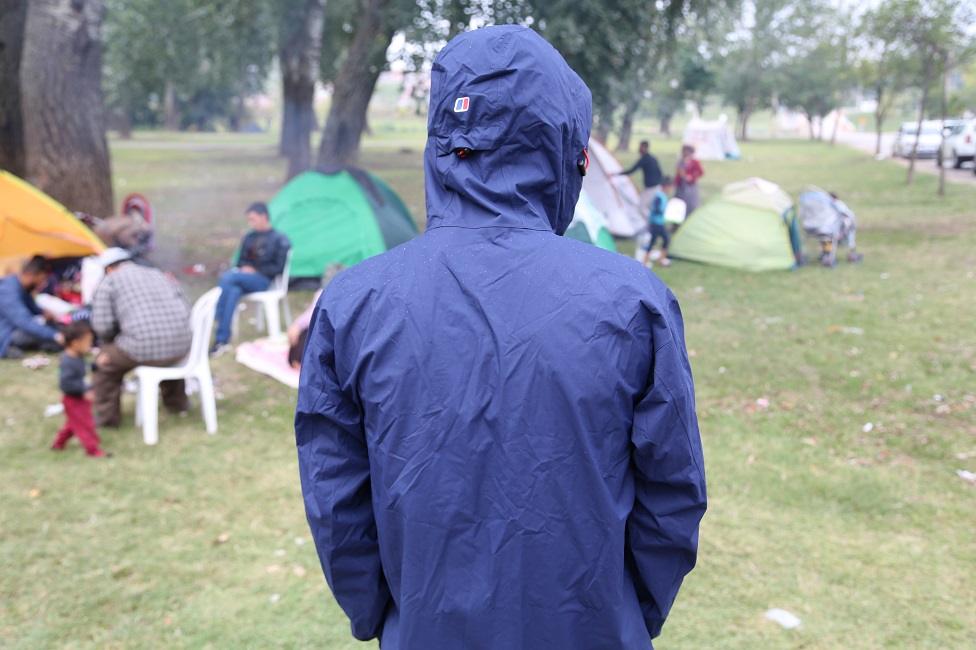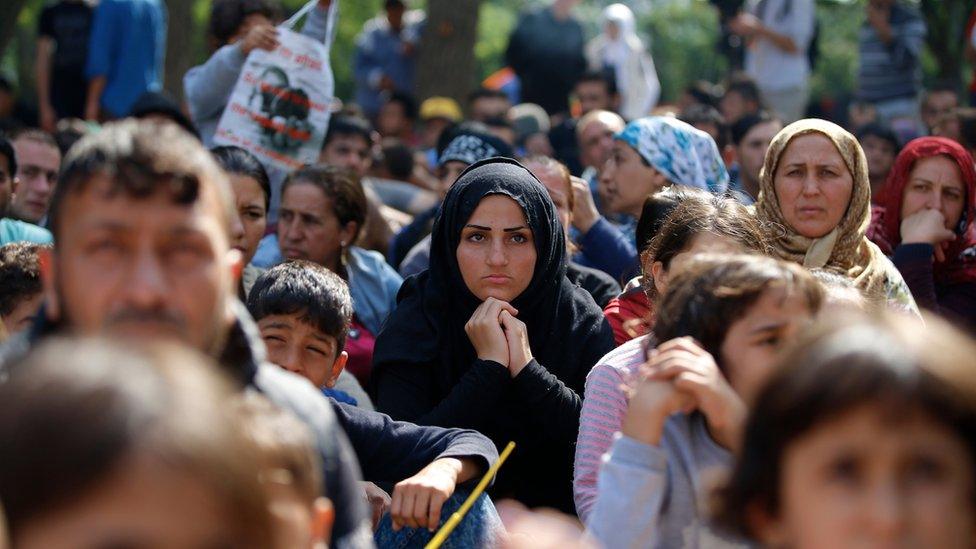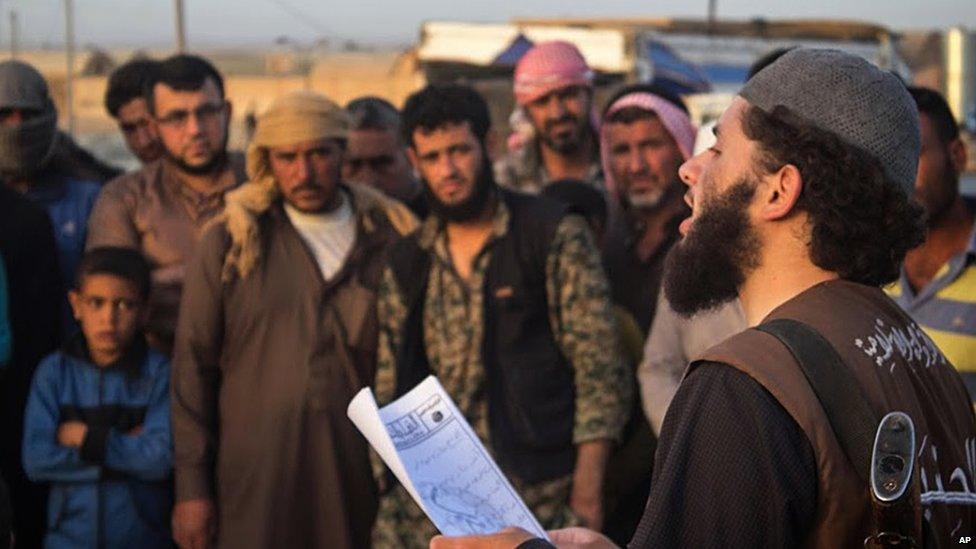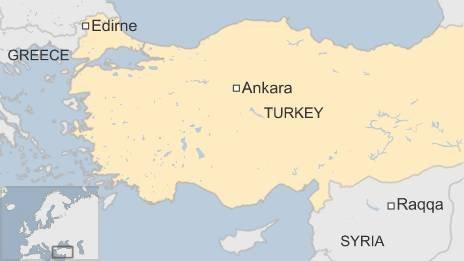Migrant crisis: Fleeing life under Islamic State in Syria
- Published

Mohamed says he will have to go back to Raqqa if he cannot get into the EU
"If they knew I was talking to you, I'd be killed," says Mohamed.
Young and a fluent English speaker, he comes from the Syrian city of Raqqa, the de facto capital of so-called Islamic State.
The threat posed by the group is one of the main factors pushing the mass migration of people to Europe.
And as we sit beside the stadium in Edirne where 2,000 have gathered, trying to cross Turkey's land border with Greece, he gives me an insight into the heart of the "caliphate".
"At first when they arrived, it seemed fine because [Syrian President] Assad's forces were driven out," Mohamed says.

Thousands of migrants are waiting at Turkey's border with Greece to find out what their future will hold
"But then they tightened their control. They imposed their rules: anybody who defied them, anyone who was suspected of talking to journalists or TV channels was immediately taken off to be killed.
"They have a big intelligence network - foreigners working for them, who inform them about everything. I've seen Germans, Chechens, Turks, Saudis and Tunisians. They're the ones who catch you."
Prison for smoking
What changes has he seen during the IS takeover, I ask?
"Until a few months ago we had internet at home. Now we have to go to internet cafes to go online - and they come and check which sites we've visited.
"We only have two hours of electricity per day. There's talk that they'll remove satellite dishes from houses so we can only watch TV they control.
"And food prices are going up. We're banned from smoking - I was caught twice with a cigarette, put in prison for a day and given 20 lashes.
"Men are not allowed to be clean-shaven - anyone who is, will be put in prison."

Islamic State militants have imposed the group's strict interpretation of Sharia law in Raqqa
The IS black flag now flies across Raqqa and every official building has "Islamic State" painted on the walls, Mohamed tells me.
How are the militants recognised?
"They carry guns - all the time."

Fleeing Islamic State
Beheadings, crucifixions and mass shootings - What is Islamic State?
Exclusive footage - inside IS stronghold
'Taking their future into their own hands' - The BBC's Lyse Doucet on why migrant crisis is erupting now

"When you look at the faces of our citizens, they have fear in their eyes," he tells me.
"Everyone is afraid that one wrong word will put them in prison or worse. We all love Islam - but this is not Islam.
"Now even people say they want Assad to come back. Both are evil - but this is worse."
Back to Raqqa?
Mohamed is desperate to cross safely into Europe, unable to pay the $2,000 (£1,300) demanded by smugglers for the boat trip to the Greek islands and unwilling to risk his life.
Mark Lowen reports from one pressure point in Edirne, on the Turkey-Greece border
But as the EU progresses with plans to redistribute 120,000 asylum seekers, the reality is that he will not be among them. The number only includes those already in the bloc, in Italy or Germany - not those knocking at Europe's door here in Turkey. They will be encouraged to stay. But Mohamed refuses.
"Here I cannot make a decent life for myself. I earn so little money, they don't want me here," he says.
"If I cannot get to Europe, I will go back to Raqqa.

"There, I will live like I have a clamp to my throat - but at least I'll have my family."
It is that natural human inclination - the need for safety - that is driving this mass migration.
And as Islamic State broadens its control and continues its rampage, those like Mohamed subjected to it will pursue the path to the refuge they crave.